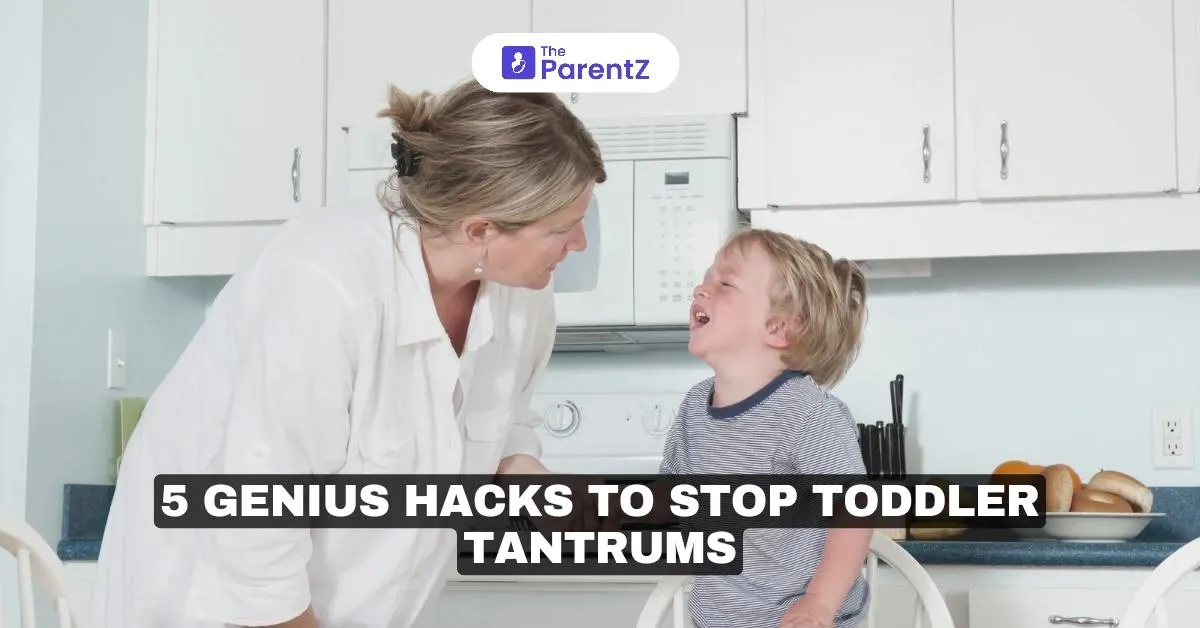Toddler tantrums are undeniable aspects of every parent’s life. One minute your little one might be the picture of cuteness, and the next, they might be on the floor wailing because you didn't peeled the orange the correct way. In fact, most parents will resonate with it. According to a survey, almost 87 percent of parents of toddlers experience tantrums weekly, and most last anywhere between 2 and 15 minutes. And these few minutes can feel like a never-ending moment. Though toddler tantrums are part of their growing journey, find out some helpful hacks to reduce the toddler drama.
Validate Their Feelings Too
When your toddler is frustrated over their sandwich, which was cut into squares instead of triangles, most parents turn to saying, ‘Stop crying!’ The ultimate hack is—instead of shutting them down, validate their emotions. So you can say something like, ‘I can see you’re upset because you wanted the sandwich cut differently.’
This approach really works! In fact, according to research, validation helps children feel understood, which can significantly reduce the intensity of their tantrums. Understanding their emotion means you’re showing empathy.
The Distraction Power
Toddlers are great at turning even the mundane things into catastrophic ones. It's time to use it to your advantage. When you notice your little one brewing some drama, its probably time to distract them—a silly dance, a random toy, or something exciting outside the window. After all, the distraction power is undeniable and helps redirect their focus, giving them a moment to forget what upset them in the first place. A pro tip—carry a mini distraction kit—small toys, bubbles, or stickers everywhere you go for those sudden tantrum moments.
Choices Make It Easier
Most tantrums have a desire for control. But did you know, according to a study, kids who are given choices have fewer chances to rebel because they feel involved in decision-making? After all, when everything is told to them by adults, giving them some choices might be great. So the next time you order them to put on your shoes, ask them would they like to prefer the blue ones or the red ones. Make sure you don't overwhelm them with options.
The Art of Prevention
Sometimes, the best approach is to prevent one before it starts. Obviosu triggers, such as hunger, tiredness, or overstimulation, are perhaps easy to notice. If you know your little one gets cranky in the evening, prepare for snack time before his meltdown. The best part is, even studies have proven that maintaining consistent routines reduces toddler meltdowns by up to 40 percent. And when your child is fully loaded, there are fewer chances they will go back to their tantrum mode.
Stay calm even if it’s hard.
Watching your child scream over something ridiculous can make any parent's blood boil. But your reaction matters way more than what you actually think. After toddlers, soak up all your emotions. That means if you stay calm, you are setting the tone for them to calm down too. Self-regulation can go a long way in teaching them to handle big emotions. It is important to respond with patience, to show them meltdown doesn't necessarily need to escalate every time.
Takeaway
The toddler parenting journey is full of drama and tantrums. And these moments might leave you feeling powerless for a while. However, by validating your child’s feelings, responding with patience, using distractions, and preventing triggers, you can deal with toddler tantrums like a pro. At the end of the day, encouraging emotional regulation will benefit them in the long run.





Be the first one to comment on this story.